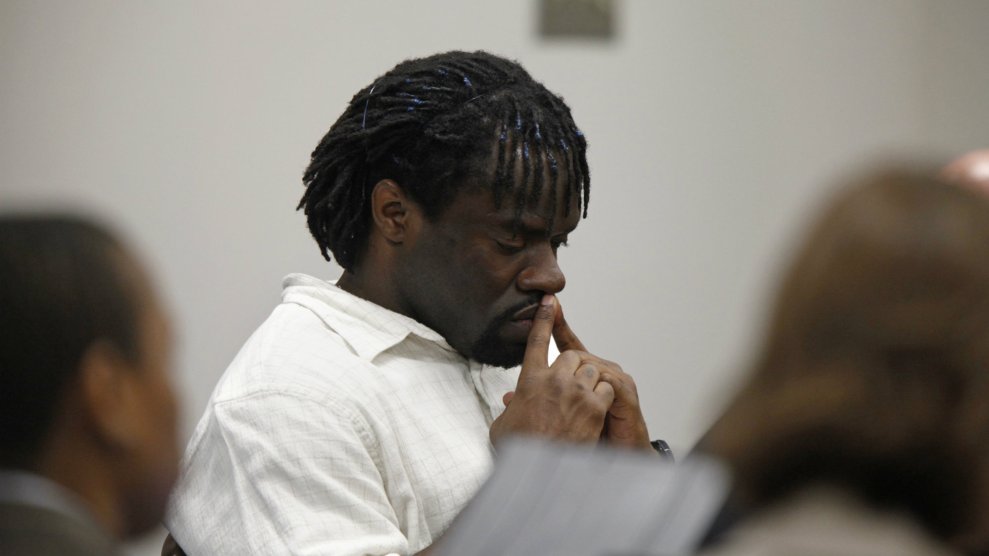Reposted from the Center for Death Penalty Litigation

Earlier this month, Marcus Robinson was found dead in his cell at Scotland Correctional Institution. The prison ruled it a suicide. He was 49 and had spent his entire adult life, as well as a good chunk of his childhood, in prison. His death didn’t make the news. But for those who worked on Marcus’ case for decades, it was a tragic reminder of our criminal punishment system’s failure to create even a semblance of justice.
Marcus grew up with many loving relatives and a strong, supportive mother, but an abusive father inflicted trauma from a young age. Yet, a racist system treated him like an incorrigible monster rather than a child in need of healing. He ended up in juvenile prison, a cruel system reserved almost exclusively for Black children, which makes people more likely to be incarcerated as adults.
Marcus was barely 18 years old when he played a role in a robbery that left 17-year-old Erik Tornblom dead. At his 1994 trial for Tornblom’s murder, Marcus was portrayed as a cold-blooded Black man on the hunt for a white victim. Prosecutors intentionally removed Black jurors who might have been more likely to see Marcus as human. Marcus soon became the youngest person on death row, and a new cycle of trauma began.
In 2007, Marcus was 12 hours away from execution before litigation over the state’s lethal injection protocol led to a stay. He’d already had his veins examined in preparation for the fatal injection, and already said goodbye to his family in what he thought was their final visit.
A few years later, Marcus’ case became the first to be tried under the North Carolina Racial Justice Act. In 2012, Judge Gregory Weeks ruled that prosecutors intentionally and systematically removed Black citizens from Marcus’ jury. Judge Weeks said Marcus had also proven that such discrimination was happening in capital cases across North Carolina.
It was a historic victory that brought to light decades of racism in death penalty trials, and Marcus was resentenced to life without parole. But even that victory was snatched away when the N.C. Supreme Court overturned it on a technicality and sent Marcus back to death row. Marcus and his legal team had to fight until 2020 to finally get his life sentence restored.
Attorney David Weiss remembers going to the prison to tell Marcus the news that he would never be executed: “Marcus said he was excited, grateful, thankful, and elated. He rattled off this string of adjectives. In retrospect, I wonder how happy he really was to be serving a life without parole sentence, whether he was saying that more for our benefit. Life in prison was really hard for Marcus.”
At his funeral, his mother, the Rev. Shirley Burns, sang a beautiful hymn. She had also sung it at the funerals of her two other sons. One of them was murdered in 2006 and police never solved the crime. Friends and family talked about a side of Marcus that never made the headlines. He was one of several talented singers in his family. He was loyal and protective, mischievous and funny.
We’d like to imagine a different life for Marcus, one where he wasn’t born into a racist society that too often sees Black children’s lives as disposable. One where he was shown kindness and compassion as a child, rather than imprisoned.
“Marcus was smart, witty, and sarcastic,” Weiss remembers. “He liked to cross-examine me about his case, or about a current event. He’d ask me hard questions until he felt like he caught me in a contradiction or an awkward moment. Then he’d flash that wide smile and start laughing. Not at all in a mean-spirited way. I think he enjoyed debating and questioning. Maybe in another life he’d have been a lawyer.”
Read Marcus’ obituary here. Donate to help his family with funeral expenses here.


